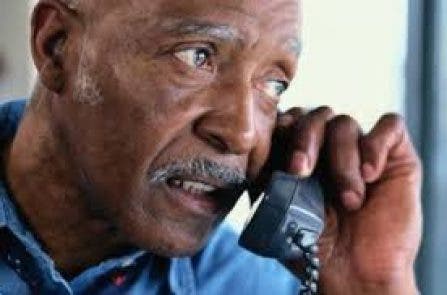Crime & Safety
Terrifying Phone Scam Reaches Michigan
Mayada Hilal said the call she received Thursday sounded like the real deal. And so do hundreds of others targeted across the country.

Mayada Hilal of Dearborn got a terrifying call Thursday from a man who said he had snatched her brother, Ahmed, after an automobile accident; was holding a gun to his head; and would kill him if she didn’t deliver $3,000 to a local hospital to pay medical bills related to the accident.
Hilal did what authorities advise in kidnappings: She called police, who told her the whole thing was a hoax, WXYZ-TV reports.
Dearborn police told the television station Hilal isn’t the first person in the city to be targeted in the virtual kidnapping scam, which has been reported across the country. Typically, victims are tricked into paying ransoms by wire transfer to callers who falsely claim to have kidnapped their family members.
Find out what's happening in Dearbornwith free, real-time updates from Patch.
In New York City alone, there have been hundreds of hoax kidnappings, FBI spokesman Peter Donald told Reuters Wednesday. “This is hundreds of people who have actually wired money to them,” he said.
» For stories like this one, and to stay on top of what’s happening in Dearborn, subscribe to the daily Dearborn Patch newsletter.
Find out what's happening in Dearbornwith free, real-time updates from Patch.
Some of the calls include background voices to add authenticity, the FBI said. In most of the calls, victims have been asked to transfer money. In the Dearborn incident, Hilal was asked to meet the caller at a local hospital with the money.
An automobile accident is a common ruse used by the fake kidnappers, Business Insider reports. In some cases, they’ve claimed the hostage was involved in a car crash with a gang member, was involved in a drug deal or had been smuggled across the border.
In some cases, victims have wired up to $1,900 to an account, only to be asked for more money to ensure the hostage’s release.
Besides calling local law enforcement authorities, as Hilal and her family did, what should you do if you get a call? The FBI advises:
- Ask to speak to the hostage.
- Ask the kidnapper to describe the hostage.
- Listen to the voice of the kidnap victim.
- Try to get in touch with the hostage through social media, phone calls, or text messages to check whether he or she is OK.
- Make some more time for yourself by repeating the kidnappers’ request back to them, or claim to be writing down what they’re saying.
- Try to avoid arguing with the kidnapper.
- Ask for the hostage to call you from his or her own phone.
Also on Patch:
Get more local news delivered straight to your inbox. Sign up for free Patch newsletters and alerts.